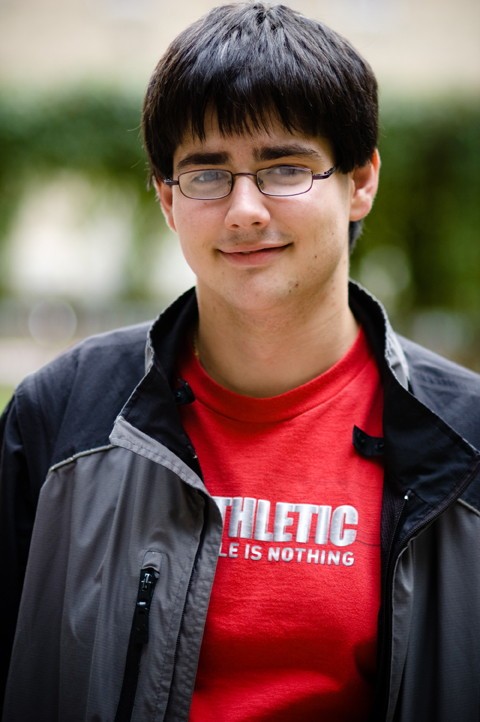Security in numbers
UWSA SafeWalk service starts next week
The UWSA SafeWalk program is gearing up for another year by recruiting volunteers to escort students, faculty and staff to their car, bus stop or residence at night. Six volunteers have been hired, with the hope of hiring one or two more.
The program, which provides service Monday through Thursday from 7 to 11 p.m. and Friday from 5 to 9 p.m., provides a sense of security for students who do not feel comfortable walking alone in the downtown at night. It will start by Tuesday, Oct. 13.
Andrea Sokal, a third-year history student, is one of many students who feels vulnerable walking to her vehicle alone.
“I am a young female who carries her car keys ... and cell phone around,” she said. “I am a prime target to be mugged.”
Sokal, who used the SafeWalk program last year after a weekly night class, said although her parking spot in the bus depot parkade was not a far walk from the university, she felt a great sense of comfort with the SafeWalk volunteers.
“Downtown is scary at night and there is safety in numbers,” she said. “Having some more people around is always nice.”
Chris Rarick, supervisor for security services, agreed with Sokal that the program is successful at increasing people’s comfort level in the area surrounding the university. While Rarick doesn’t advise students to walk alone at night, he said the downtown is not as dangerous as many people perceive it to be.
“Reports from students regarding issues in the neighbourhood are very seldom,” he said.
Volunteers free up time for security workers, who provide a 24/7 SafeWalk service in the area surrounding the campus. For students needing to be escorted to areas further away from the university, a SafeRide service is available.
SafeWalk coordinator and former volunteer Vanja Tubin said that volunteering for SafeWalk is not only a good opportunity to become familiar with the area surrounding the university. It is also a great way to connect with students and staff.
Volunteers receive an $18 honorarium for every four-hour shift they work.
“It’s a good opportunity for students to make a little money,” said Tubin. “If someone doesn’t have a job ... they can spend one or two evenings a week volunteering and getting compensated in a way.”
Tubin strongly encourages students, faculty and staff to take advantage of the program once it begins next week.
“It is created to be there for them,” he said. “We do want to stress that people use it as much as they want.”
Published in Volume 64, Number 6 of The Uniter (October 8, 2009)








